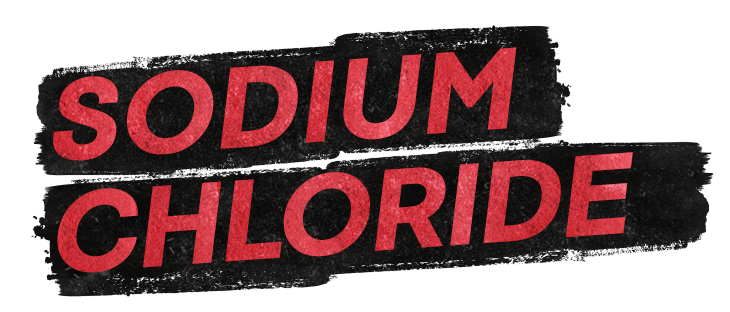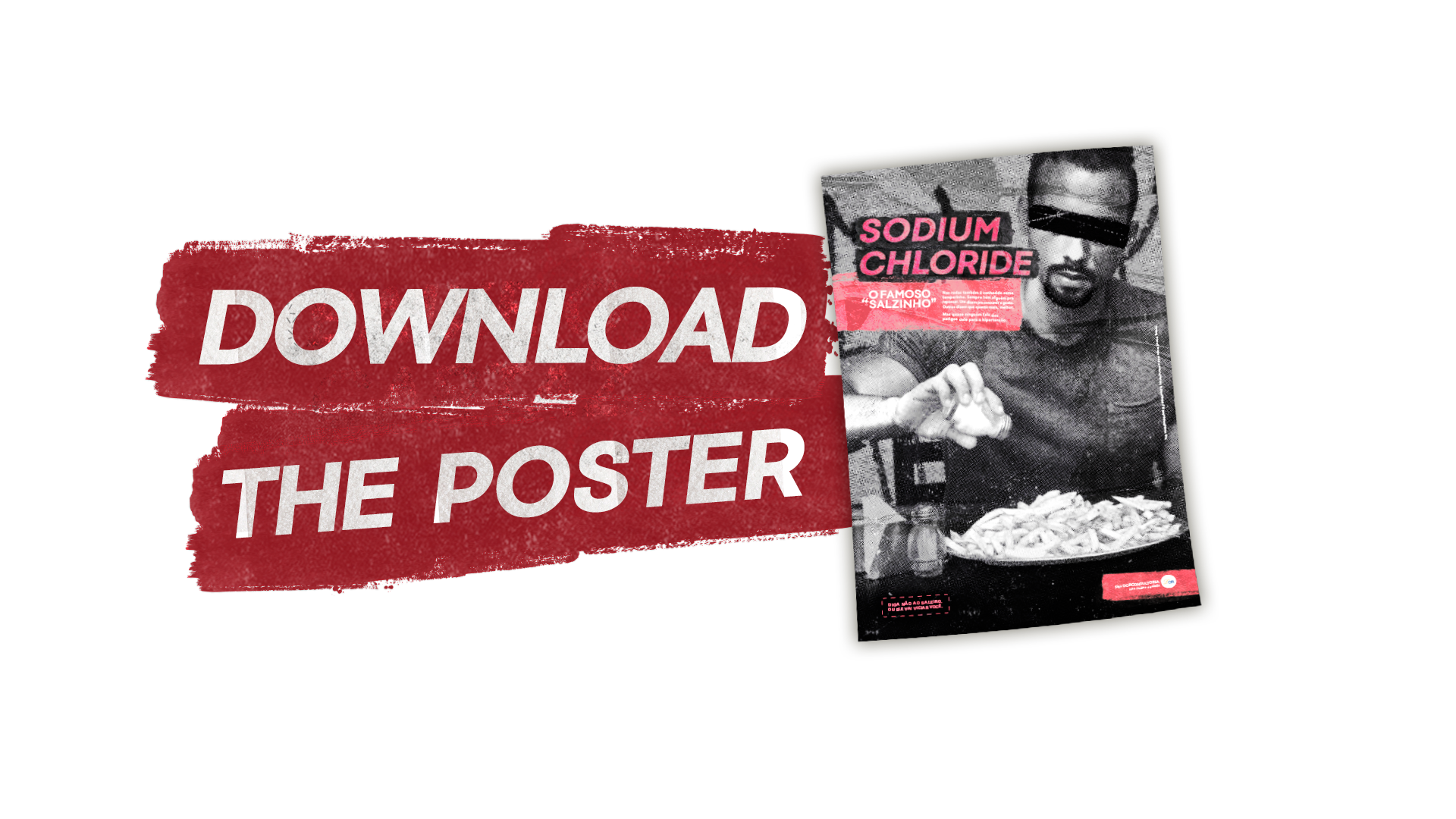The “extra pinch of salt”, “table salt” and other names. It is dangerous and it is everywhere. It is consumed by everyone, but almost no one knows about its serious effects on hypertension—or high blood pressure, as it is popularly known.
Daily wrong choices stimulate blood pressure, which tends to stay equal to or above 140/90 mmHg.
The worst part is that this work overload of the heart happens silently and may trigger cardiovascular problems, which are responsible for about 300 thousand deaths in Brazil, per year.1
A common hazard
Among the causes of hypertension, the customary choices are the ones that bring the highest risks. Excess salt and sugar, stress and a sedentary lifestyle are among the main factors. It is necessary to stay alert to the daily pitfalls, where it is least expected – such as at your dinner table or in your city traffic.
Know the underworld of each risk:

It may deceive your need.
After all, the body needs at least 2,5 grams of salt daily.
For safety, the World Health Organization recommends that this consumption is, on average, up to 5 grams per day. In practice, this means a level teaspoon or 5 pinches above the quantity already used during the food preparation.
The problem is that, for Brazilians, the daily salt is close to being an addiction: on average, each person ingests 12 grams a day3 – more than the double recommended.
And, as every addiction, it brings serious consequences and action needs to be taken to reduce it.
Taking away the salt shaker from the table during meals is a small and important step for your heart.

For sure someone very near you abuses of this substance.
This is because, on average, Brazilians intake 18 teaspoons of sugar (80g) daily, which is way above the 12g recommended by the World Health Organization?.
From this total, 64% of the consumption corresponds to added sugars—the extra teaspoon added to drinks and other kinds of food?.
The previous tip is also true for the sugar bowl or sugar sachets: leave them far away from you during meals and also limit the consumption of sweets during the day.

The scientific names for stress and sedentariness are not the ones above, but the risks of hypertension do not deceive: stress causes tachycardia and even heart attack, while sedentariness increases bad cholesterol levels and causes heart problems.
To combat these behavioral addictions, it is important to focus on activities that bring you pleasure, such as reading, meditation, hobbies and practicing physical activities.
Also, be aware of other addictions
Smoking and alcohol consumption are old allies of hypertension—besides other risks which are even worse, such as various kinds of cancer. For these substances, there are no safe levels.
What about heredity?
Hypertension may be genetic. And there is no way of controlling that. On average, children of hypertensive parents have between 3 to 10 times more chances of developing the disease?. In these cases, medical supervision must start at age 20.
The crisis may hit, so attention to symptoms
• Pain in the nape of the neck
• Vomiting
• Shortness of breath
• Blurred vision
• Palpitation
• Insomnia
• Chest pain
• Dizziness
Learn to leave this …
• Remove the salt shaker and sugar bowl from the table and avoid pinching the food after it’s ready
• Practice at least 150 minutes of physical activity per week (or 30 minutes per day)
• Do not eat foods with more than 7% sodium in the composition (eye on the label!)
• Avoid fried foods and fatty foods. Prefer fiber consumption, natural sources of fatty acids (omega 3 in fish and oilseeds), vegetables and whole grains
• If you do not have a family history of hypertension, measure your blood pressure once a year. If you have this history, double the measurement. The test can be performed in hospitals or even pharmacies
• Sleep 6 to 8 hours per night
• Drink plenty of water (learn the amount needed aqui)
… or you may have these complications:
• Blindness
• Stroke
• Myocardial Infarction
• Heart Attack
• Chronic Renal Failure
… and worse ones?:
Cardiovascular diseases account for 30% of deaths in Brazil
They kill twice as many as all cancers combined
They kill 6.5 times more than deaths from infection, including AIDS
They cause 2.3 more deaths than external causes (accidents and others)
They are responsible for than respiratory diseases
They reduce by more than a decade the life expectancy
Fight the dangers
Medical follow-up is essential and only this professional can prescribe medication. If this happens, it is important to know that SUS (Sistema Único de Saúde) provides free medicines in the public network. Sign in and check out:
https://portalms.saude.gov.br/saude-de-a-z/hipertensao#




